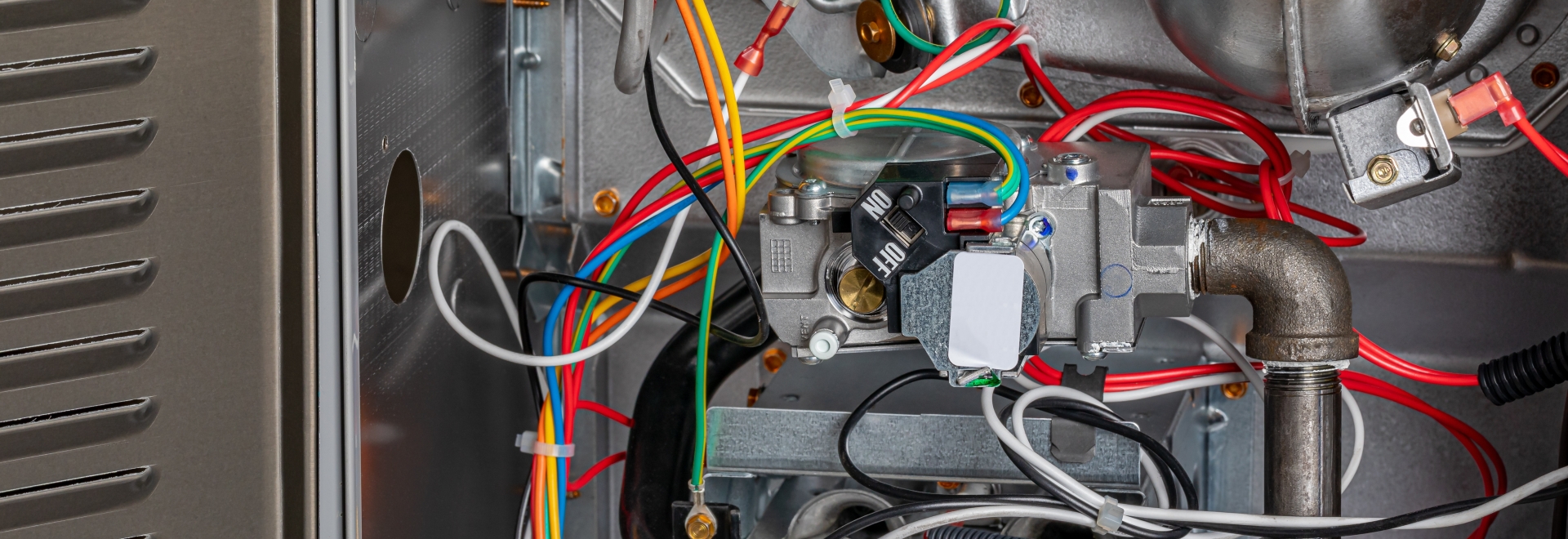
If your home in Princeton, NJ, feels a bit too chilly even after adjusting the thermostat, you’re not alone. Many homeowners experience an issue where their furnace keeps turning off and on, leaving their home less comfortable and their heating system struggling. This frustrating cycle, known as furnace short cycling, can lead to increased energy bills and unnecessary wear on your HVAC system.
What causes a furnace to short cycle? At Princeton Air, we’ve diagnosed countless furnaces, and the usual culprits include an overheating heat exchanger, a dirty flame sensor rod, or even an oversized furnace. Here’s a deeper look at these common issues and how they can be resolved.
Oversized Furnace
Have you recently replaced your furnace, or has short cycling been an issue for years? An oversized furnace may be the culprit. When a furnace is too large for your home, it heats the space too quickly, causing it to turn off and on frequently. This not only reduces efficiency but also increases wear and tear.
If you’re dealing with an oversized furnace, Princeton Air can help you replace it with a properly sized, energy-efficient furnace that matches your home’s heating needs.
Overheating Heat Exchanger
The heat exchanger is a critical component of your furnace that heats the air. When it overheats, it triggers the high-limit switch, which shuts off the furnace to prevent damage. This overheating often results from low airflow, which can be caused by several factors:
- Dirty Furnace Air Filters: A clogged air filter restricts airflow, forcing the blower to work harder and causing the heat exchanger to overheat. Regular furnace air filter replacement is a simple and effective solution.
- Dirty Blower Wheel: A buildup of debris on the blower wheel can reduce airflow. This issue requires professional cleaning by an HVAC maintenance expert.
- Closed Air Supply Vents: Blocking too many vents reduces airflow and increases strain on the blower. Ensure vents remain open and unobstructed to maintain proper circulation.
Addressing these airflow issues will not only resolve overheating but also improve your system’s overall efficiency.
Dirty Flame Sensor Rod
If your furnace shuts off just a few seconds after starting, a dirty flame sensor rod could be the problem. The flame sensor rod ensures the burners ignite safely. Over time, soot can accumulate on the rod, preventing it from detecting the flame. When this happens, the sensor signals the gas valve to shut off, extinguishing the flame. Cleaning or replacing the flame sensor can restore your furnace’s functionality.
Stop Short Cycling! Call the Furnace Experts at Princeton Air
Diagnosing and fixing furnace short cycling requires expertise. At Princeton Air, our furnace repair specialists can identify the root cause of the problem and recommend the best solution. From HVAC maintenance for furnaces to furnace replacement in Central NJ, we’ve got you covered.
If your furnace needs to be replaced, ask about our zero-interest on-bill financing options, allowing you to spread out the cost over 84 or 120 months. Payments are conveniently added to your utility bill, making it easier to invest in the comfort and safety of your home.
Trust Princeton Air for furnace troubleshooting, maintenance, and repair. Call us today at (609) 913-2316 to schedule service.
JS Needham-Master HVACR Lic. # 3980 | M Burt-Plumbing Lic. # 8389 | NJHIC # 13VH00255200 | PAHIC # PA001066
